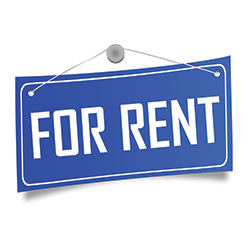|
exhibiting 101
 image: studiostoks/shutterstock.com
Buyer Beware
A thorough audit of your trade show invoices may reveal errors that would otherwise wreak havoc on your budget.
Looking back at the hundreds of shows I've exhibited at in the last 25 years, I'd estimate that about 50 percent of the show invoices I've received had at least one error on them. In one case, my bill was almost $20,000 more than I'd anticipated. I ran to the exhibitor service desk, where the rep and I discovered that instead of being charged for the weight of my shipment, I had been billed for the gross weight of my freight and the rig. After a few taps of the keyboard, I had a corrected invoice that was a lot lighter on my credit card.
This example is the most egregious error I've found, but others haven't been far behind. With the amount of paperwork it takes to put together a trade show, mistakes are bound to happen. I've found that auditing my invoices, understanding every line item, and comparing the costs to the orders I submitted and confirmed is my best defense. This requires keeping an extensive paper trail and copies – either electronically or on paper – of all email confirmations with scanned copies of show orders, online confirmations, pre-show change requests, on-site labor tickets, certified weight slips, and deposits. Here are some of the budget busters I've found when auditing invoices, broken down by service provider.If these charges pop up on your invoices, notify your biller, provide it with your back-up documentation, and request a correction. Exhibit Houses ➤ Taxes that weren't included on quotes for goods or services but mysteriously appear on the final invoice. Make sure you know if a quote's bottom line really is all-inclusive. And remember that exhibit properties that are used the first time outside the state they were built in may not require tax payments in the state of origin. ➤ Vanishing credits for discounts negotiated on the exhibitor's behalf. This includes installation-and-dismantle labor-rate reductions, supervisory I&D fee waivers, and shipping discounts. ➤ Undisclosed fees, such as a 3- to 5-percent handling fee or surcharge for credit-card use. This charge is illegal in 10 states: California, Colorado, Connecticut, Florida, Kansas, Maine, Massachusetts, New York, Oklahoma, and Texas, although at the end of 2016 some of these states had pending court cases to overturn these laws. Also, some states have laws in place that permit offering discounts on non-credit-card transactions. ➤ Failure to meet discount deadlines. When I negotiate to have an exhibit house provide "turnkey" service to order show services, I also note in the agreement that it is responsible for meeting all discount deadlines, since missing the deadline can result in at least doubling the total bottom-line cost of the services when including the additional turnkey fees. ➤ Exhibit-property disposal fees. I've requested and been charged for the disposal of exhibit properties, then subsequently found the same properties still listed on my quarterly storage inventory invoice or spotted them in the exhibit house's warehouse as part of their new rental inventory. ➤ Exhibit storage fees. There are many ways to compute exhibit storage, e.g., by cubic feet, per pallet, etc. Make sure you have a clear understanding how you're being charged. After paying for storage to the center of the aisle between crates to guarantee anytime access, I've been charged to move other exhibitors' crates that were blocking mine. ➤ Inventory labor and repair charges. One exhibit house charged me for inventorying my exhibit properties and checking them for damage before being put in storage. But seeing as how the damage I'd reported and requested to have fixed was still evident at the next show, I knew even if the inventory was done, the repair wasn't. Transportation ➤ Omitted standard charges on quotes. Always ask for an all-inclusive quote so you're not missing any of the commonly anticipated fees, including weight-slip charges, fuel surcharges, weight minimums, and detention (aka wait) time. ➤ Ancillary fees for services that were not disclosed or negotiated in the shipping quote. These include fees for additional labor and special equipment such as lift-gate trucks. ➤ Additional detention charges when your carrier is picking up shipments for multiple exhibitors. Carriers frequently have to wait for all of the exhibitors on their load to get their exhibits dismantled and outbound paperwork turned in to the general service contractor's (GSC) desk. But carriers rarely prorate this wait time and instead slap each exhibitor with the full detention charge. Material Handling ➤ Incorrect weight. I've had problems with freight weights measured using forklifts whose forks double as a scale. Make sure the forklift driver clears the scale after each exhibitor's load is weighed. ➤ Wrong rate per hundredweight (CWT). Verify that the rate you're being billed per CWT matches your specific type of freight (crated, mixed, or blanket wrapped) and compare it to the rates quoted on the material-handling form in your exhibitor manual. ➤ Small-package drayage rates. Some shows offer a small-package rate for parcels under a specified weight, such as 35 or 50 pounds. Check your invoice for any small packages to ensure you're not paying for the 200- to 300-pound material-handling minimum standard at most shows. ➤ Overtime loading. I was once charged the overtime (OT) material-handling rate at a show because the GSC misplaced one of my high-value equipment crates for a few hours, which delayed my entire loading. I've also been billed OT for my move-out material handling when only 10 minutes of the two-hour load out was completed outside normal hours. ➤ Off-target material-handling charges. I've been charged a penalty for an off-target, direct-to-site move-in when I'd received a written variance since I was coming in with a shipment from another show. I've found it helpful to provide the truck driver with a printed copy of the variance, along with the inbound bill of lading and certified weight slip to avoid miscommunication and subsequent fees. ➤ Marshaling yard fees. It costs the GSC money to rent, staff, and maintain the marshaling yard, and some of these fees may be passed on to exhibitors. Beware of being charged marshaling-yard fees if you're using a small-package carrier such as FedEx or UPS. This freight is generally delivered directly to a special small-package dock at the show site. Electrical ➤ On-site power. Verify the number of outlets and the amperage of your electrical hook-ups. I've been charged for power I didn't order based on the electricians using another exhibitor's order and layout to install my electrical hookups. ➤ Early bird discounts. Obtain written confirmation that your electrical order was received by the discount deadline and be sure to have this confirmation with you at the show. ➤ Electrical surcharges for items such as high-voltage and 24-hour power. When in doubt about which electrical services to order, check with the lead electrician working the show and submit a copy of your floor plan. ➤ Material charges. You'll be billed for the cost of renting the materials necessary to connect ordered power to your equipment and lighting (e.g., extension cords, surge protectors, adapters, gaff tape, etc.). Verify that the items for which you're billed are actually being provided. ➤ Small exhibit electrical-labor credits. Some shows negotiate a credit for a couple hours of complimentary electrical labor, usually for exhibitors with 200 square feet or less of booth space. But just because the credit is noted in the exhibitor services manual doesn't mean you'll see it when you receive your invoice. Carpet, Pad, and Cleaning ➤ Labor and materials. Read your carpet order form carefully to find out exactly what's included if you are renting carpet onsite from the GSC. Some GSCs bundle carpet, pad, two types of tape, Visqueen, labor, and multiday cleaning into a cost-saving package; others charge individually for these items. ➤ Phantom carpet. When renting carpet from the GSC, you'll often get a 9-by-10-foot piece for your 10-by-10 exhibit. The 1-foot shortage is due to the GSC reusing 9-foot-wide aisle carpeting. But you will still be charged the 100-square-foot minimum fee for vacuuming. If you dispute this based on the impossibility of a labor crew vacuuming carpet that isn't there, some GSCs will play fair and cut your cleaning bill by 10 percent. I&D Labor ➤ Hours worked. Whether you've hired your I&D labor from the GSC or an exhibitor-appointed contractor (EAC), always verify the total number of straight time and overtime hours billed for each crew member on the handwritten documents (aka hard cards) that list the names, start and stop times, and total hours worked by your I&D crew members. If you are supervising setup, you'll be asked to sign these at the end of each shift. Then compare the labor charges on your invoice to your daily hard cards. ➤ Double billing of lead labor. When I was a rookie exhibit coordinator, the lead on my labor crew kept disappearing from my booth. I discovered that he was supervising setup for another exhibitor, too. I spoke with that exhibitor, and we determined that the EAC was double billing – knowingly charging both of us for 100 percent of the lead's day-labor rate, airfare, car, hotel, and per diem. After the show, I questioned this billing practice all the way up to the EAC's president. He told me this is a common practice in the industry and to "get over it." I did – and permanently got over using this company for my EAC labor. Make sure the words "exclusive use" appears in your contracts if you're paying for the work and expenses of a traveling lead supervisor. ➤ Supervisory fee. Check your invoice for this charge (25 to 35 percent of your total labor bill). It can pop up even if you didn't order a supervisor. ➤ Material charges. If you're providing your own I&D supplies, such as double-sided carpet tape, shipping tape for your carpet pad, Visqueen, cleaning supplies, strapping, stretch wrap, etc., check your labor invoice to make sure your I&D contractor hasn't charged you for them. Some labor contractors charge an undisclosed, fixed, flat percentage of your total labor bill for materials such as cleaning and shipping supplies whether they are used or not. Ask that this charge be removed from your invoice. I've often joked that if I had a side business in which I could take home a cut of the money I saved exhibitors by finding errors on their invoices, I could have retired long ago. All kidding aside, these are far from all the things that can go wrong with your exhibit's billing, but they give you an idea of why diligently auditing your show
invoices pays off. Doing so not only saves your company money, but also gives you bragging rights to your boss for being an eagle-eyed guardian of your budget bucks.
E
 Candy Adams
Candy AdamsCTSM, CEM, CMP, CMM "The Booth Mom," is an independent exhibit project manager, trainer, speaker, consultant, and an Exhibitor Conference faculty member. CandyAdams@BoothMom.com
|
|
|
||||||||||||||||||||||||||||
|
|
||||||||||||||||||||||||||||
|
TOPICS Measurement & Budgeting Planning & Execution Marketing & Promotion Events & Venues Personal & Career Exhibits & Experiences International Exhibiting Resources for Rookies Research & Resources |
MAGAZINE Subscribe Today! Renew Subscription Update Address Digital Downloads Newsletters Advertise |
FIND IT Exhibit & Display Producers Products & Services All Companies Get Listed |
EXHIBITORLIVE Sessions Certification Exhibit Hall Exhibit at the Show Registration |
ETRAK Sessions Certification F.A.Q. Registration |
EDUCATION WEEK Overview Sessions Hotel Registration |
CERTIFICATION The Program Steps to Certification Faculty and Staff Enroll in CTSM Submit Quiz Answers My CTSM |
AWARDS Sizzle Awards Exhibit Design Awards Portable/Modular Awards Corporate Event Awards Centers of Excellence |
NEWS Associations/Press Awards Company News International New Products People Shows & Events Venues & Destinations EXHIBITOR News |
||||||||||||||||||||
|
||||||||||||||||||||||||||||






